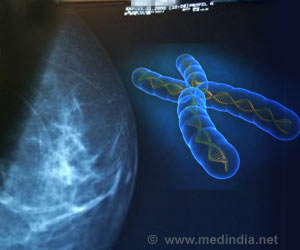Japanese government has approved the world's first clinical trial using stem cells harvested from a patient's own body.

The trial treatment will try to create retinal cells that can be transplanted into the eyes of patients suffering from AMD, replacing the damaged part of the eye.
AMD, a condition that is incurable at present, affects mostly middle-aged and older people and can lead to blindness. It afflicts around 700,000 people in Japan alone.
Stem cell research is a pioneering field that has excited many in the scientific community with the potential they believe it offers.
A China-based research group on Wednesday said they were hoping for regulatory approval to test stemcell therapy on spinal cord injuries they believe can help immobile people walk again.
Stem cells are infant cells that can develop into any part of the body.
Advertisement
This is controversial because it requires the destruction of the embryo, a process to which religious conservatives, among others, object.
Advertisement
Like embryonic stem cells, iPS cells are also capable of developing into any cell in the body, but crucially their source material is readily available.
Following the government approval, the Riken Center for Developmental Biology will start the world's first clinical trial using iPS cells as soon as next summer, a Riken spokesman said.
Riken will recruit six patients suffering from AMD, all aged at least 50 years, and take cells from their skin.
These cells will be genetically reprogrammed to become iPS cells. The infant cells will then be nudged in the direction of developing into retina cells.
Once a network of retina cells has been developed -- a process that could take around 10 months -- this can be transplanted into the patient's eye, the spokesman said.
Patients will be monitored over the next four years to determine how well the implants have performed, whether the body has accepted them and if they have become cancerous.
"Because no one in the world has used iPS cells in a clinical trial, what we are doing will set the standard," research leader Masayo Takahashi told the Mainichi, a daily paper. "It's a daunting prospect, but one that brings joy."
She said she expects that patients in the initial trial will see only a very modest improvement in their sight.
"We don't want people to have excessive expectations," she said.
Kanji Takahashi, chief ophthalmologist at Kansai Medical University Hirokata hospital, told AFP the trial was a positive step, but not a done deal.
He said current treatment regimes include monthly drug injections directly into the eyes of AMD sufferers, at a cost of 150,000-170,000 yen ($1,500-$1,700) per injection.
"Improving the eyesight of AMD patients is a difficult task, and what's important is whether transplanting cells improves vision," he said.
"The trial is a hope for AMD patients, but it will probably take years before the new treatment will actually contribute to improving the vision of many people."
Source-AFP















